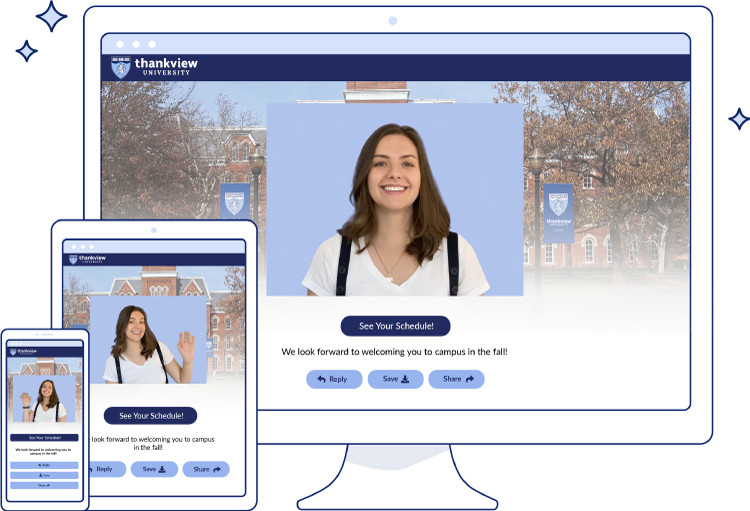9 Ways To Form Corporate Giving Partnerships With Companies
Last year, corporate giving rose by 13.4% in the United States. If you’re not working with corporations already, now’s the perfect time to start. And if you are, get ready to throw more of your energy and passion into setting up programs and partnerships with the corporate world.
But what are the options? And how do you go about securing those partnerships? Here’s a closer look at nine different types of corporate philanthropy and how you can make them work for your nonprofit.
1. Matching Gift Programs
Let’s kick things off with one of the most popular types of corporate giving programs — matching gifts. This is where corporations agree to match the donations of their employees to approved nonprofits and charities.
Say Anna in HR at BigCorp wants to make a donation of $250 to your nonprofit from her own pocket. She knows BigCorp has a matching gifts program in place, so she can then request this to be activated and you get a matched donation from both.
Matching gifts programs are amazing as they mean more funds coming your way from some donations. Plus, research has shown that an employer having a matching gifts program actually encourages more employees to give. Great, right?
Some corporations only match donations given to an approved list of nonprofits, while others are happy to match to any nonprofit organization. To get your nonprofit on their list, get in touch with businesses that you’d be happy partnering up with. You’re likely to find more success with larger corporations, as 65% have a matching gifts program compared to just 28% of smaller organizations.
2. Community Grants
Now more than ever, organizations are looking for ways to support their local communities. Tap into this movement to secure another popular source of corporate giving — community grants.
Community grants are sums of money set aside to contribute to the improvement, well-being, and support of local communities. For example, RetailGiant might have a community grants budget of $5,000 per store annually to support local social impact programs.
These feel-good grant requests are often managed through a dedicated foundation arm of the corporate office, or organized at a local level through neighborhood stores or locations. What’s great about community grants is they’re really accessible to nonprofits of all types and sizes, so you don’t have to have a huge corporate giving team to take advantage of them.
Once you’ve received your funds or made a start on your project, use our automated personalized video platform to send a thank you video to the funders. While they probably receive a thank you letter from most nonprofits they donate to, sending a heartfelt video is a great way to stand out and encourage a long-term relationship.
3. Employee Volunteer Grants

Lots of corporations encourage their employees to get out there and volunteer in the local community. Some of them take it a step further and offer something called employee volunteer grants.
Employee volunteer grants are where the company makes a donation to the nonprofit alongside their employee’s volunteering efforts. This is usually split into individual volunteer grants and team volunteer grants.
The individual grants recognize an employee’s individual volunteering contribution. This means you not only get the benefit of their time, but an extra sweetener in the form of a donation from their employer.
Say for example that Simon from StationeryCo volunteers 10 hours of his time to you. StationeryCo has a volunteer grant that means they’ll make a donation to you of $300 in recognition of the importance of volunteering. Neat, huh? Plus, it’s also great for the sponsoring organization’s employee engagement.
Team volunteering grants are mostly the same, except instead of benefitting from the support of one employee you’ll find yourself with the help of a handful or more. And you’ll still get that monetary contribution from their employer as a way of spreading the love and appreciation for the work you do even further.
4. Volunteer Support Programs
Not every organization can offer a monetary donation when their employees volunteer with you. And that’s okay — sometimes the volunteering itself is worth its weight in gold. Even if they don’t provide extra funds, many organizations run volunteer support programs that lend their expertise to you at no cost.
Volunteer support programs are great because they mean you can access the time, help, and insight of experts without the huge consultancy or resource cost. Volunteerism can be an ideal way to scoop up a little extra support and bring fresh knowhow into your organization in areas like marketing, IT, accounting, project management, and design.
Tap into your local community of experts to see if they offer volunteer support programs. Time is money they say, but there’s an awful lot of kind-hearted souls out there that’ll be happy to offer a few hours of support a month or quarter to help you reach your biggest goals.
5. Corporate Sponsorships

Look at the world around you and corporate sponsors are everywhere. Major sporting events, TV shows, and theme park attractions all benefit from having a partnership with a named brand. You can secure a little of this action for your nonprofit too through corporate sponsorships.
Corporate sponsorships give you not only the funds to support the work you do, but the extra benefit of co-promotion and potential press attention from the organization’s public relations efforts. After all, organizations love to talk about corporate social responsibility and how they’re contributing to the world around them.
Look for corporate sponsors that are known to your audience, and align with your organization’s mission. If you’re running a book drive for schools, an independent book store or community-focused chain could be the perfect sponsor. You might be able to snap up a handful of sponsors at different tiers too — especially if you’re looking for sponsors for an event where there are multiple stages, breakout areas, or sessions.
6. Fundraising Matches
Want to make your peer-to-peer fundraising efforts go further? Talk to local, regional, and national organizations about fundraising matches.
Fundraising match programs are similar to matching gifts programs, but they’re centered around fundraising campaigns and events where people solicit donations from the people around them.
An employee could be looking for donations for their sponsored walkathon, marathon, or another type of fun race. They gather donations from friends, family, and their network — and their employer matches the amount raised. Use our ThankGiving package to help your supporters create an engaging, video-led space to raise their funds.
So many people don’t know about this type of corporate giving, so it’s definitely one to raise when you talk to organizations about how you can partner up to do good. Encourage your supporters to ask their employers too, by including a note in your peer-to-peer fundraising welcome pack.
7. In-Kind Donations

Sometimes corporate giving doesn’t involve cash contributions at all. Lots of organizations instead offer in-kind donations that can help you raise money or make your funds go further.
In-kind donations are a great way for companies to get involved even if they can’t donate themselves. They may be able to offer products or gift cards for you to raffle off, or a more valuable piece for you to auction at a charity gala.
Donating physical goods also helps with sustainability. So many offices upgrade their desks, chairs, and IT equipment long before it’s unusable. Partner up with local businesses to see if they’ll offer their old equipment as an in-kind donation. They contribute towards a greener planet, and you get some high quality tech that’ll save you buying new.
8. Payroll Deductions
A lot of the time people are happy and willing to donate, but life gets in the way and it’s forgotten about by the time they head to your website. To make things simpler, lots of corporations now offer the option for automatic payroll deductions to support workplace giving.
Automatic payroll deductions are ideal because they offer a consistent source of funds. Sure, it might only be a few dollars a month per employee, but it’s a donation all the same. Plus, you might get lucky and find a business that also matches these payroll deductions.
Like matching gifts programs, organizations will often have a list of approved nonprofits and charitable causes for employees to choose from. Get in touch with them to secure yourself a spot on their list.
9. Annual Grant Stipends
We’re all familiar with stipends for education, professional development, or transport. But did you know some organizations also offer a grant stipend to help support charities and nonprofits?
Annual grant stipends aren’t commonplace everywhere, and you’re most likely to see them at big businesses or smaller organizations that are big on corporate responsibility and social good. Here, employees are awarded a set sum of money per year to donate to a nonprofit of their choice.
The size of the stipend usually reflects the size and profitability of the company. You could see anywhere from $250 to a couple of thousand dollars available to each employee. Make the most of this by getting your name out there and encouraging people to ask their employers if they have, or will introduce, an annual grant stipend.
Sample Some of the Corporate Giving Pie
With so many options and a whole world of businesses out there, it’s time to focus a little more heavily on corporate giving. Think about which types of program suit your organization best, then create a list of corporations to get in touch with.
Business partnerships thrive on you having a great relationship with the organizations around you. Want to stand out even more? Book a demo to find out how our personalized video platform can help you share gratitude and build those all important relationships with key businesses.
